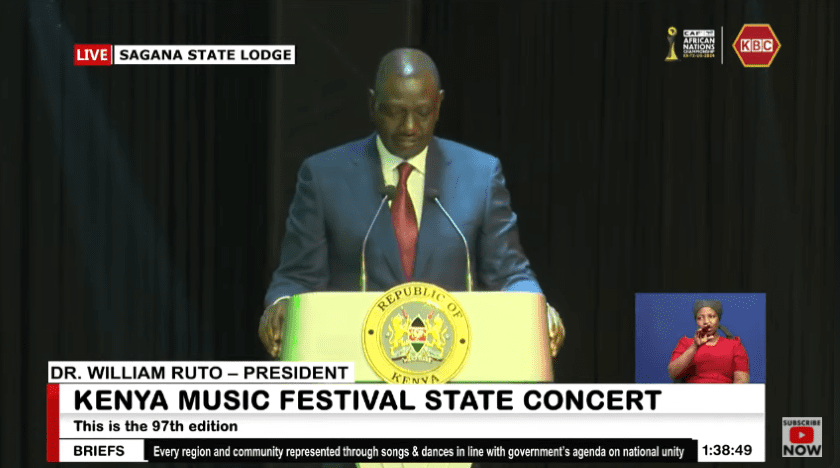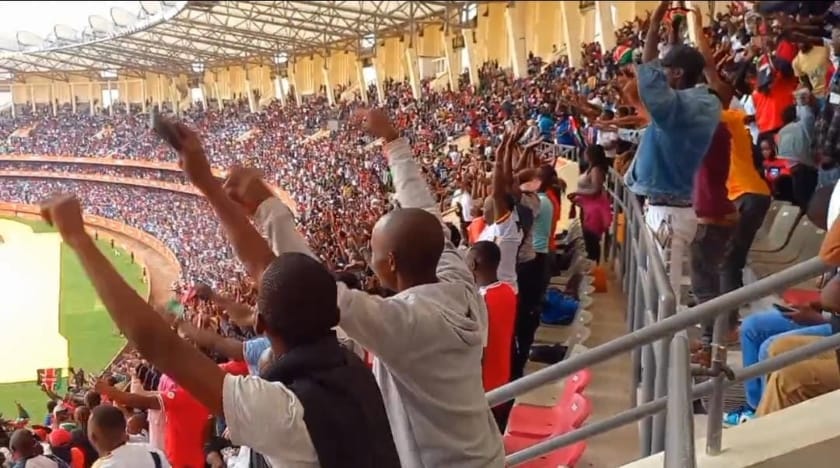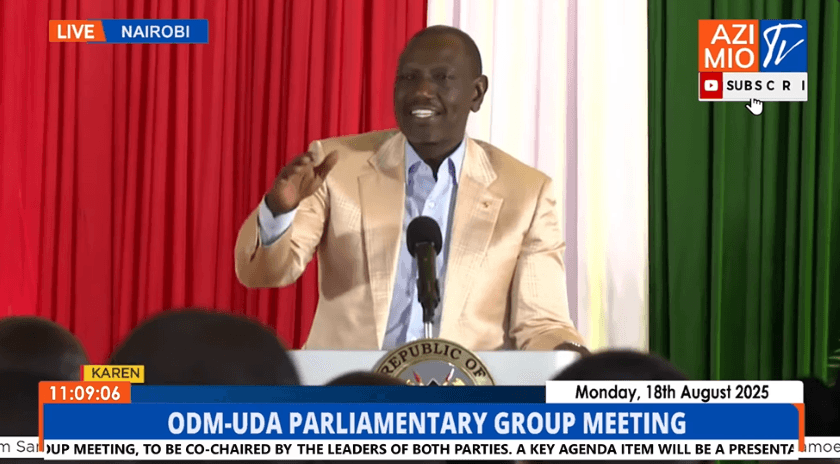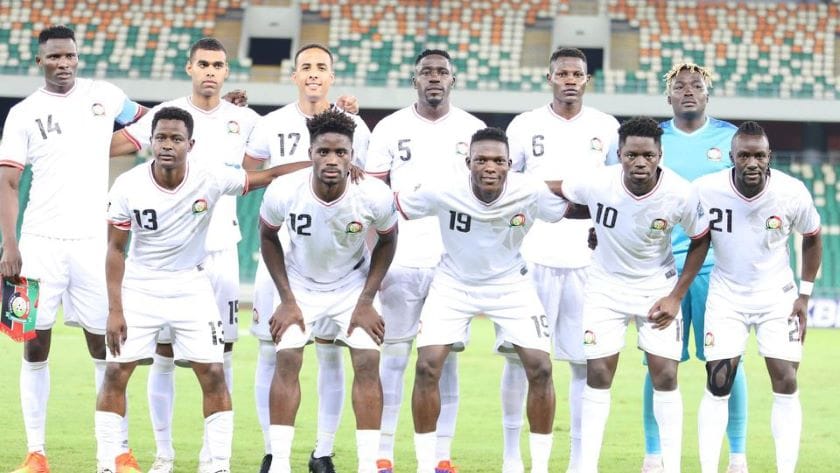President William Ruto says he will meet the Recording Academy in the United States next month to push plans for an African edition of the Grammys in Nairobi. He also wants world-class recording studios and has pointed to the new Talanta Stadium as a potential home for big events.
“We will answer the cynics with tangible outcomes that benefit the people,” he told the Kenya Music Festival audience in Sagana.
The idea is bold. Imagine thousands of visitors, global stars, heavy media coverage and new money for hotels, caterers and sound crews. A successful Grammys event could give Kenyan music a global stage, create jobs in production and boost tourism. The government says it already paid a KSh 500 million bid fee as part of the push to host the event. (If Kenya does not win the bid, officials say the fee will be returned.)
But for many Kenyans the excitement collides with a sharper question: is this the right time? Critics point to big gaps in the local music economy. Artists still lack reliable royalty systems. Venues that meet global technical and safety standards are few. Grants, loans and clear legal protection for intellectual property remain limited. In short: the industry is not yet built to host or fully benefit from an event of this scale.
If you want to understand the trade-off, ask this simple question: would one big show fix the everyday problems artists face? The short answer is no. Hosting a headline event can help, but only if the basics are in place first—working royalty collection, fair contracts, training for sound and stage crews, and legal safeguards so creators earn from their work. Otherwise, the Grammys risk becoming a flash in the pan.
Online reaction shows the split clearly. Some celebrate the ambition; others see a mismatch. One popular reply argued Kenya should first build royalty systems, modern arenas and funding schemes for creatives before aiming for the Grammys. Another critic wrote that the government must focus on education and health rather than headline projects. A third voice thanked the President for diaspora outreach but warned that big events must follow real change on the ground.
Governance of Ujinga for wajinga.
We must save ourselves from this man as soon as possible. #RutoMustGo
— Maverick Wyclife 🌍 (@WycOdiwuor) August 16, 2025
How can the President talk about hosting the Grammys in Kenya when our artists don’t even have proper royalty structures in place? We lack world class arenas to stage such an event, and our entertainment industry doesn’t have access to grants, loans, or even adequate legal…
— CLEMOH PR (@Clemoh_Pr) August 16, 2025
Should this really be a priority considering the billions that would be spent yet basic things such as education and healthcare is a big problem? Aren't there better ways to support creatives?
— THEE ALFA HOUSE (@thee_alfa_house) August 16, 2025
What would success look like? First, real investments in music infrastructure: studios, concert halls and trained technicians. Second, solid policy: clear copyright laws, easy systems for royalty collection and grants that help young artists scale. Third, public transparency: show how bid money is spent and how it links to long-term industry growth. These are the steps that turn a one-off show into lasting value.
The government says it understands these needs. Officials have asked the Ministry of Youth and the Creative Economy to speed up work on stadium upgrades and recording facilities. They point to the US–Kenya Creative Economy Forum earlier this year as a start. But actions matter more than statements. The public wants proof: clear budgets, timelines and legal reforms before the spotlight arrives.
A Grammys night in Nairobi could be unforgettable. Or it could feel like a costly photo op. The difference will be simple: are leaders building systems now, or betting everything on one big show? Kenya’s creatives and taxpayers deserve a plan that does both — dream big, yes, but build the basics first.
Featured image via Screengrab








